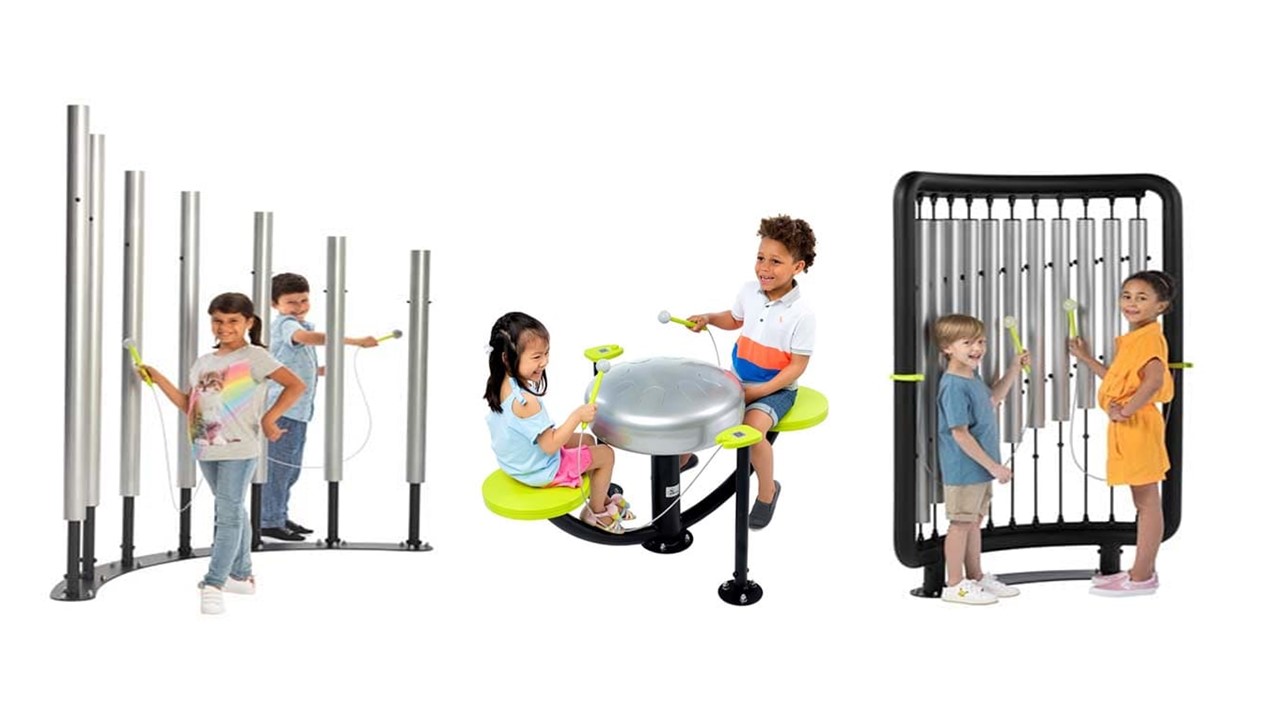Music and its influence on children have been studied in many universities, consistently demonstrating the benefits that music education and the use of musical instruments have on children. Musical language’s stimulating capacity helps increase children’s IQ, stimulate cognitive abilities, and benefit social development, among many other contributions that favor the child. Facilitating children’s access to musical instruments is essential, and playgrounds are an excellent way to make this approach.
Coordination and synchronization
Music should not necessarily be limited to strict academic training but also the inclusion of musical instruments in a playground. The skills developed by synchronizing hand and finger movements when playing an instrument, and even more, when it is necessary to coordinate with other children to perform a song, are important for developing coordination. All these are fundamental elements to help with the child’s cognitive abilities, which are stimulated by the musical language.
Helps in studies
Learning to play musical instruments from an early age helps to promote discipline, concentration, and memory and also allows a more significant amount of brain connections, which is of great help in the academic training of children and even their skills in subjects such as mathematics. Playing musical instruments increases the focus, contributing to the study routines of children being more productive, and your learning is more effective.
Improves social attitudes
Playgrounds are an excellent medium for the social development of children, but if musical instruments are included, this effect is maximized since music helps children to relate, collaborate, and work as a team to create songs and melodies. As mentioned in previous posts, playing in a musical band, inventing a new piece, and singing are collaborative activities that help children integrate and work towards a common goal while having fun.
Emotions and self-esteem
Music helps to channel emotions and increase sensitivity in children, fostering empathy, increasing self-confidence, leaving stage fright behind, and allowing for better communication with the people around them. Music becomes a means to transmit emotions as well. In many cases, it is possible to identify the children’s state of mind before they communicate it directly, allowing parents to approach them and help them solve the problematic situations they may face.
Creativity and imagination
Music is an art and is an excellent way for children to enhance their creativity, curiosity, and imagination in the search for new sounds, create melodies and invent songs; this is a direct advantage for them. Music gives children the necessary means to acquire new skills, helping the integral development, both psychomotor, emotional, psychological, academic, social, and more, enabling the formation of functional and capable adults in various areas and situations.
What do you think about this topic? Do you think musical instruments are important in playgrounds?
If you want to know more about musical instruments for playgrounds, you can contact us by visiting the following link.
